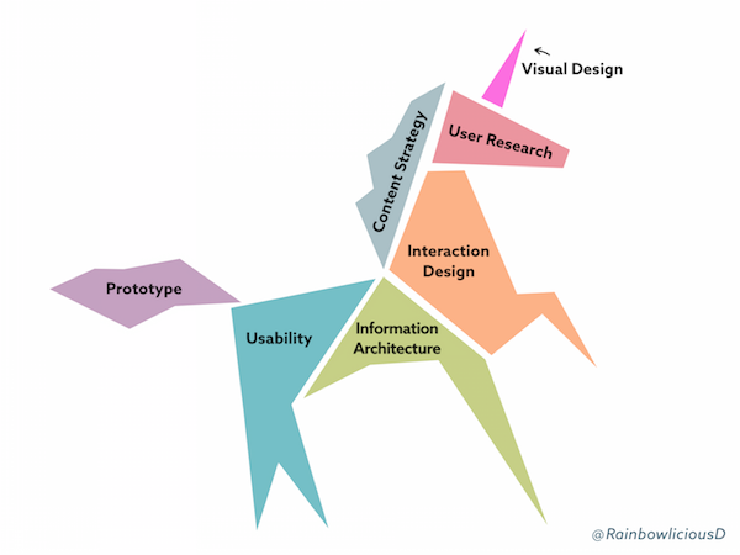User Experience Self-Education Resources
An annotated list by Susan Farrell
Last updated: 1 March 2016 Status: Beta / draft Suggestions, etc.: [email protected] Usage Intent: Please ask, until it’s under version control at GitHub. This is just a draft. Intended Audience: Anyone who wants to learn how to make things easier to use, through better design and research.
What is User Experience? (UX)
There are a lot of official and unofficial definitions worth reading. An applied version:
- User experience is concerned with what happens when someone uses something (tools, designs, systems, toys, amusement parks, etc.) and their experience of that.
- People experience interacting with businesses and organizations in various ways for various reasons (find information, shop, research, call, buy, receive, set up, repair, return, email, branding, stores, etc.).
- A person’s user experience with something can be good, bad, ugly, brilliant, fun, embarrassing, and so on.
- Usability can, and should, be evaluated. Occasionally it should be measured, but quick, qualitative testing with users helps you improve outcomes faster, especially while designing.
- The profession of UX is a big set of people with many and various combinations of UX skills.
- They are all trying to improve people’s lives by making software, information, products, services, and other designed experiences, better, easier to use, and more delightful.

The skills and responsibilities of an effective team. It’s ideal to have more than one UX person to ensure important sub-specialties are covered. Originally published in Building an enterprise UX team by Rachel Daniel (also on LinkedIn), UX Director at MaxPoint. Used by permission.
What’s a good user experience? Well, that depends on things like:
- Who the users are
- What the purpose of the system is
- What people expect
- How well it meets their needs
- How they feel about it
- And how it’s experienced, sustained, and maintained over time
Why improving human-computer interaction matters
- In many parts of the world, every business is suddenly in the software business
- Everyone is a potential computer user
- UX methods solve important problems for people and organizations
- UX research finds and meets real, human needs
- People want to be delighted. Functionality is usually not enough.
- You can decide with data (stop arguing)
- You can create more-appropriate products and services by collaborating with users
- You can find and mitigate risks by testing designs early and often
- You can measure how much more usable your products and services are over time
- You can compare your offerings with competitors’
- You can streamline: saving time, effort, and money
How to Get Up to Speed
User Experience Careers (free report and article) Read this to see if it sounds right for you.
Start doing these things one at a time until you’re doing all of them:
- Carry a notebook
- Collect screenshots and photos of designs that work well and poorly
- Pay attention to the details of every interface you use
- Aggressively teach yourself by reading books
- Find a mentor and a community
- Get (and later provide) an internship or apprentice position
- Take some courses online and also hands-on workshops
- Learn to describe interfaces and interactions as precisely as possible
- Embrace usability testing so you can learn what works and check designs as you build
- —–Start designing—–
- (Don’t get distracted by tools, use what you can get that works)
- Paper prototyping
- Interactive prototyping
- Practice
Where to Start: Reading
Principles of visual design HCI university textbook(s) that cover both design and ergonomics / human factors Interaction design Accessibility Research methods (overview) Information architecture How to analyze data
You are what you read. Get serious by hitting the books. There’s no faster or better way to educate yourself. Snack a little with blogs, talks, and workshops, sure; but the books are where the foundational learning happens. Everyone in UX has read these, will read these, or has them on hand for reference. See also other books these people write. Find more in their bibliographies. Go to CHI, UXPA, and other conferences where new design research papers are presented. (See UX Professional Organizations, below.)
Books
Great books on interface design are infrequent. The old textbooks have a lot of good in them still. Humans hardly ever change, and usability problems seem perennial.
- Don’t Make Me Think
- The Design of Everyday Things
- UX For Beginners: Key Ideas
- Rocket Surgery Made Easy - Do It Yourself
- The User Experience Team of One
- Research-Based Web Design and Usability Guidelines (PDF - free)
- A Web for Everyone - Designing Accessible Experiences
- Observing the User Experience
- Designing Interfaces
- About Face - Essentials of Interaction Design
- The Elements of User Experience: User-Centered Design for the Web
- Information Architecture: For the Web and Beyond
- Search Analytics for Your Site
- Remote Research
- Prototyping: A Practitioner’s Guide
- Measuring the User Experience
- Designing for Touch
- NN/g recommended UI Books
Other
- Top [35] blogs and resource website list by usabilitygeek.com (Don’t miss their Honorable Mentions at the bottom)
- UI Patterns
There are many pattern libraries, including the above; seek them out.
- Look at a lot of patterns to understand interaction.
- Beware copy-pasting. Almost nothing is universally appropriate, and interfaces evolve (and devolve) all the time. If your platform has an official style and pattern library, start with that.
- Some popular patterns are awful. Figure out why.
- When someone mentions a great app or website, find out what makes it so great.
- Optimize and improve design patterns that people already love. Don’t reinvent the wheel. Invent new controls and interactions, but test them.
Websites for UX Reference and Best Practices
- https://www.nngroup.com
- http://usabilitynet.org
- http://hcibib.org
- http://usability.gov
- How to Recruit Participants for Usability Studies
- The Eight Golden Rules of Interface Design
- Universal Usability Resources